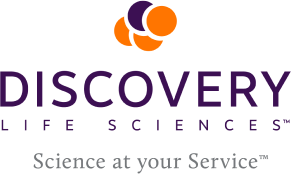Nearly a year after the first infection, much of Europe still remains under tough restrictions, as countries extend their lockdowns into Easter and further into April. Meanwhile, a third wave of infections has already begun due to the even more contagious variants. European leaders are scrambling to procure enough vaccines for their citizens and there is growing concern that 60-70% herd immunity by the end of summer is looking bleak. In the meantime, how can leaders better manage public support and provide some sense of normalcy to restless Europeans? Perhaps the idea of sitting in cafes, going to a movie, or dancing at a music festival seems downright unthinkable to many of us now, but experimentation models using rapid COVID tests offer a glimpse of what could be a safer way forward while people wait for vaccines in Europe.
With Easter coming up, European travel bans changing frequently, and the inconvenience of expensive quarantines, some people haven’t been able to visit family in other countries in over a year. This is understandably causing some impatience among people who are still looking for a sense of normalcy in social interactions.
Emily Dover (American)
Discovery’s Vice President EMEA based in Zurich
What’s happening with the vaccine rollout?
German Health Minister Jens Spahn has said that there cannot be significant reduction in cases while Europe still lacks the vaccines. And yet, vaccines are being produced in mass, but there are hiccups in manufacturing and distribution and it’s taking much longer than expected. In most European countries, vaccine programs have targeted the elderly and more frail, while the virus continues to spread among the unvaccinated younger demographics. To date, larger EU countries such as Germany, France, Spain, and Italy have administered 2 doses to only 4-5% of the people.
The risks for opening up too soon are clear, but there are growing fears among leaders that some people have stopped minding recommendations as they lose faith in the reopening process. Moreover, public healthcare providers are rightfully concerned about space, as another wave of overcrowding in hospitals would be catastrophic, similar to what occurred in Italy in March 2020. While the virus in younger people might not be as fatal as in elderly cohorts, it means longer recovery times and occupied hospital beds. So, perhaps the question now, is there a way to use more frequent testing to give people more flexibility so they can move, travel, and meet with friends safely and responsibly?
International science & medical research band together against COVID
Since March 2020, companies, institutions, academia and pharma have all been part of a collective effort in the scientific push for COVID vaccine research and diagnostics. Successfully, these efforts have yielded Emergency Use Authorization from the FDA for diagnostic companies such as Abbott, Cepheid, DiaSorin, Hologic, and more – and approved vaccines from Pfizer/BioNTech, Moderna, Johnson & Johnson.
However, time is of the essence and regulatory challenges can add on weeks to these COVID research studies and clinical trials. As such, ethically acquired biospecimens collected under IRB/EC approved protocols are a critical component, with our current inventory including NP swabs, saliva, serum, plasma, PBMCs and more. We can also completely customize collections prospectively. Discovery’s extensive inventory of biospecimens collected across our 300 sites in 30+ countries has been sought out by companies such as BioNTech, whose founders were recently awarded the Knight Commander’s Cross of the Federal Order of Merit (Verdienstorden der Bundesrepublik Deutschland) in recognition of their renowned mRNA vaccine.
In Germany, we’re all extremely proud of Özlem Türeci und Uğur Şahin for their recent award. It’s extremely exciting that such scientific capabilities in research were achieved in BioNTech German laboratories with such a positive impact worldwide.
Oliver Lehner (German)
Discovery’s VP of Business Development EMEA

Photo credit TRTWORLD: Turkish-German scientists, CEOs and founders of BioNTech, Ozlem Tureci and Ugur Sahin pose for a picture with German Chancellor Angela Merkel and German President Frank-Walter Steinmeier at the presidential Bellevue Palace in Berlin, Germany, March 19, 2021 (AP)
Discovery is listed as a provider of COVID material on the FDA website, in the section for diagnostic assay validation and to date, have been used in roughly 50% of the European studies by pharma companies developing rapid COVID antigen diagnostic tests since March 2020. We continue to be committed to this effort.
Development of corona antigen tests as a quick measure for COVID diagnostics
While there are still no concrete answers, one report by the OECD suggests that widespread frequent testing could suppress the resurgence of local outbreaks, identify people who have developed some form of immunity and can safely return to work, and gain intelligence on the virus evolution, including when a threshold for herd immunity has been reached.
While RT-PCR tests are internationally recognized as the ‘Gold Standard’, they are costly and require more time (up to several days) for laboratory analysis and results, which is less practical for events. As such, rapid antigen tests against SARS-CoV-2 could provide a quicker way to detect the infected before people gather for same-day social interactions.
In 2020-2021, many pharma companies launched research and trials to design efficient COVID rapid antigen tests; Discovery is proud to have been a part of this effort. These approved tests require users to mix nasal or throat swabs with liquid on a paper strip to get colored results back within the hour (even as quick as 15 min). It should be noted that these tests provide the most accuracy only in detecting the presence of viral proteins (antigens) and Robert Koch Institute (RKI) notes that it is suitable in rooting out only those with higher viral loads. While not 100% in sensitivity and specificity, they would still provide a helpful guide to uncover the most severe and infectious cases of COVID to prevent spreading the virus.
Experiments with rapid COVID tests in European pilot projects
Thus far, the European Commission for Health and Food Safety recognizes 16 approved EU tests, which have begun rolling out in various countries. Several pilot projects in Europe are using these quick antigen COVID tests and giving people hope for the upcoming summer months.
In Germany, this strategy is allowing the football (soccer) Bundesliga in Rostock and Berlin to experiment ways to safely get fans back to the stadiums. In Berlin, there are 9 proposed pilot cultural events March 19 – April 4, including the Berliner Ensemble theater, Berlin Philharmonic, and several others. These events also require a QR-code for scanning at the entrance and FFP2 masks.
In Tübingen, Germany, “Öffnen mit Sicherheit” (Open with Safety) – cafes, restaurants, and movie theaters (with FFP2 masks), are open; 90,000 inhabitants are part of this initiative coordinated with the University of Tübingen.
In Barcelona, Spain, the government coordinated a concert of 5,000 FFP2-masked fans in Palau Sant Jordi arena. The venue had 80 nurses ready to test people at the entrance and ensure mask compliance.
In the Netherlands, they are in early testing phases using PCR tests and seven outdoor events, known as ‘Fieldlab experiments’.
In Biddinghuizen, there was even an outdoor music festival with 1,500 people. Ticket holders got their temperatures checked at the entrance, had to show a negative PCR-test result, and wore tracking sensors to monitor contact. It shows what could be possible in the coming future.
Christiaan Neeleman (Dutch)
Discovery’s President of European Operations
Conclusion:
It’s hard to say how 2021 will unfold given how quickly things can change over a period of only several months. For the moment, widespread rapid testing is only one alternative to full lockdowns. And yet, perhaps these examples are a glimpse into what’s to come to provide some sense of normalcy. By autumn, even if herd immunity is achieved and 60-70% are vaccinated, further mutations with Covid 19 virus means that testing could remain a normal procedure in the upcoming years. And perhaps that’s a good thing for public safety long term. And who knows? Maybe rapid antigen COVID tests are the way forward towards an Oktoberfest in Munich 2022 next year.

